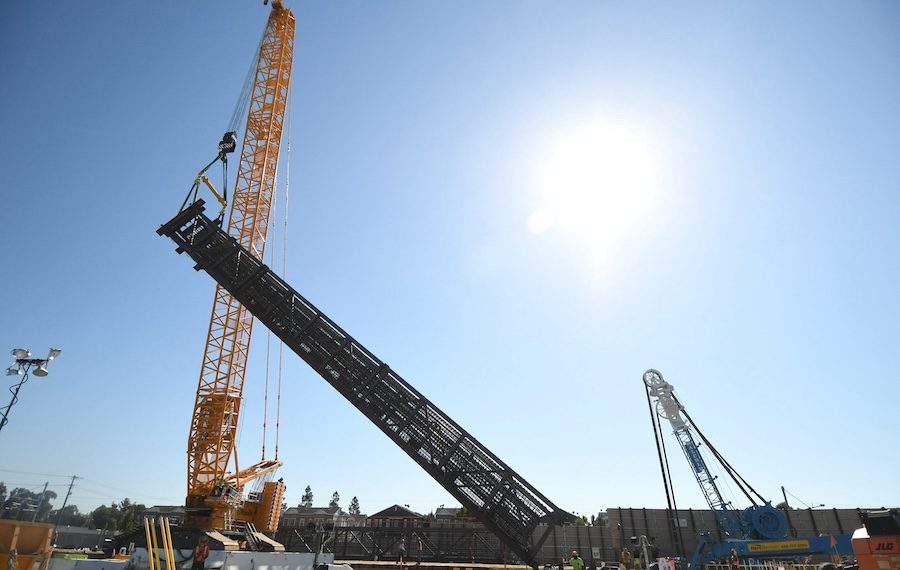After years of engineering analysis, public input and federal review, the Santa Clara Valley Transportation Authority (VTA) recently selected the single-tube tunnel as the preferred design method for the five-mile BART Silicon Valley Phase II (BSVII) tunnel section. This $12.7 billion project is a six-mile, four-station extension of the regional BART system from downtown San Jose to the city of Santa Clara.
The VTA board said the single-bore method avoids the high cost, complexity and disruption to the downtown area associated with an alternative simultaneous tunneling approach involving the use of two boring machines – an alternative that would have required open excavation in the heart of San Jose.
VTA says opting for a single well – estimated to cost about $3 billion – is the “most practical option” that “provides the best balance of constructability, feasibility and lower overall risk.” This decision allows VTA to advance project planning by approximately 60%, maintain the critical path to tunnel construction and meet the planned revenue date, officials say.
Before work can begin, VTA will go through a competitive procurement process to secure a new tunneling contractor. There is currently no short list of contractors, says VTA spokeswoman Stacey Hendler Ross. “Following an initial round of industry outreach conducted at major tunneling conferences earlier this year, VTA met with ten civil engineering and tunneling companies to discuss delivery methods, contract packaging size, scope and other contract areas,” she says.
VTA expects that the tender for the new tunneling contract will be published in the first quarter of 2026, the contract award is expected in the second quarter of 2027 and the tunnel construction will finally begin in 2029.
A joint venture of Kiewit Infrastructure West, JF Shea Construction and Traylor Brothers (KST) was originally contracted to manage the tunnel construction in 2022. However, after receiving repeated proposals that exceeded twice the project budget, VTA decided last June to look for another tunneling contractor.
“Based on initial industry feedback earlier this year and the work completed to date, VTA plans to issue a new tunnel tender to increase the competitiveness of bids, including reviewing contract terms, risk-sharing opportunities and contract size,” Ross said. “Further details about what we will be requesting will be included in the request for proposals. We will also be conducting additional industry outreach over the coming year.”
The Kiewit Shea Traylor Joint Venture remains involved in the project and is building initial civil works, including the launch structure for the tunnel boring machine.
Looking ahead, difficult ground conditions and high water tables are one of the biggest challenges in building a tunnel in the South Bay, says Sarah Wilson, BART Silicon Valley Phase II Construction Director.
“We will essentially operate a train system on five underground levels while keeping the excavation safe in difficult soil and groundwater conditions,” says Wilson. “To ensure that this operation runs smoothly and safely, expertise and management at the highest level are required.”
Much of the current work on the BSVII project is taking place at the Newhall Yard and West Portal site, on the border of San Jose and Santa Clara, west of San Jose Airport. Teams are currently building the Tunnel Boring Machine (TBM) launch structure – a massive excavation pit that is over 130 feet deep at one end and extends to the surface. This will be the starting point for the TBM's journey once it arrives from Germany and later the location where trains enter and exit the tunnel.
To prepare the tunnel construction site, crews are installing reinforced underground retaining walls made of giant rebar cages, some weighing up to 300,000 pounds. Excavation of the launch structure is also underway. Hundreds of truckloads of dirt are transported every day as crews shape the future tunnel entrance.
In addition to KST completing initial construction activities, several teams are working on BART Silicon Valley Phase II. The program management team is a joint venture of HNTB and WSP, the general engineering consultant is a joint venture of Mott MacDonald and PGH Wong, and construction management services are provided by Bechtel. Ross says there will be several more contracts to build the remainder of the BSVII project in the coming years.
The BSVII project is Santa Clara County's largest public infrastructure project. With four stations, the project will serve 55,000 passengers on weekdays once completed.
